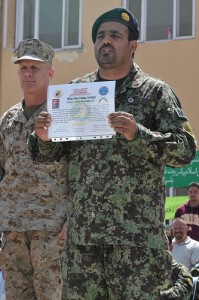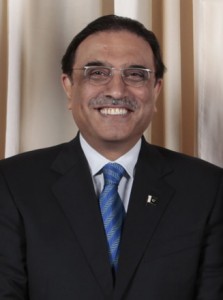On Hiroshima Anniversary, Iran Deal Opponents Make One More Push Based on Parchin Photos

Hiroshima was flattened by the US on August 6, 1945 by the deployment of a nuclear weapon. (Wikimedia Commons)
Seventy years ago today, on August 6, 1945, the US dropped an atomic bomb on Hiroshima, Japan. By November of that same year, approximately 130,000 people were dead because of that single bomb, which targeted a civilian population. Three days later, the US deployed a second nuclear weapon in Nagasaki. It appears that these horrific weapons were not needed, despite the prevailing myth surrounding their use. Even with the subsequent proliferation of nuclear weapons, the US remains the only country to have ever used them outside a testing scenario, while countries as unstable as North Korea and Pakistan have achieved nuclear weapons capability at some level.
As might be expected, Japan’s Prime Minister Shinzo Abe is using the occasion of this anniversary to call for an end to nuclear weapons. Last week, Javad Zarif made an excellent move, in suggesting that now that Iran has signed an agreement with the P5+1 group of countries on its nuclear technology, there should be a push to remove nuclear weapons and all WMD from the Middle East. Recall that Iran has agreed to the most intrusive inspections regime ever put into place in a country that didn’t first lose a war, making their call for inspections of Israel’s nuclear weapons program especially strong. These two calls together represent an appeal to those who prefer peace over war while placing the highest possible value on civilian lives.
That attitude of favoring peace over war and putting civilians first stands in stark contrast to those who oppose the Joint Comprehensive Plan of Action signed by the P5+1 and Iran. As Barack Obama pointed out yesterday, those who are opposing the deal are the same people who were so tragically wrong about the decision to invade Iraq in 2003:
President Obama lashed out at critics of the Iran nuclear deal on Wednesday, saying many of those who backed the U.S. invasion of Iraq now want to reject the Iran accord and put the Middle East on the path toward another war.
/snip/
While calling the nuclear accord with Iran “the strongest nonproliferation agreement ever negotiated,” Obama also seemed to turn the vote on the deal into a referendum on the U.S. invasion of Iraq a dozen years ago, a decision he portrayed as the product of a “mind-set characterized by a preference for military action over diplomacy.”
Obama said that when he first ran for president, he believed “that America didn’t just have to end that war. We had to end the mind-set that got us there in the first place.” He added that “now, more than ever, we need clear thinking in our foreign policy.”
One of the saddest aspects of this push for war over diplomacy is that much of it comes from deep within the US government itself. In many of my posts on the path to the P5+1 accord with Iran, I have noted the nefarious process of anonymous “disclosures” coming sometimes from “diplomats” and sometimes from “intelligence sources” that get transcribed into the press by a small handful of “reporters”. Usually the worst offender on this front is George Jahn of AP. A recent retiree from this fold is Fredrik Dahl who now, ironically, appears to be the primary press contact for the IAEA. But never fear, rushing into the void created by the departure of Dahl (or perhaps his insertion into an operative role further inside the apparatus), we have the dynamic duo of Eli Lake and Josh Rogin. Their blather being put out as “journalism” is not worthy of a link here. If you want to find it, try going to Marcy’s Twitter and searching for “not The Onion”.
Of course, the high point of this process of manufacturing nuclear charges against Iran and then getting them into the media is the notorious “laptop of death“. Running a close second, though, are the charges that Iran has engaged in developing a high explosives trigger device at the Parchin site. Showing that those who engage in this level of deceit have absolutely no pride, the charges of this work have proceeded despite an equally plausible explanation that the high explosives chamber could just as easily have been used to develop nanodiamonds. Further, those making these charges have allowed themselves to be baited into a ridiculous level of “analysis” of satellite photos of the site, with hilarious results from how Iran has played them.
Despite this level of embarrassment, one of the primary tools in this process, David Albright, couldn’t resist one last try on the satellite photo front. Yesterday, he breathlessly informed us that there are a couple of new sheds on the Parchin site and there is even some debris. And, get this, a crate has been moved! Seriously, here is the “meat” of Albright’s analysis (pdf): Read more →



